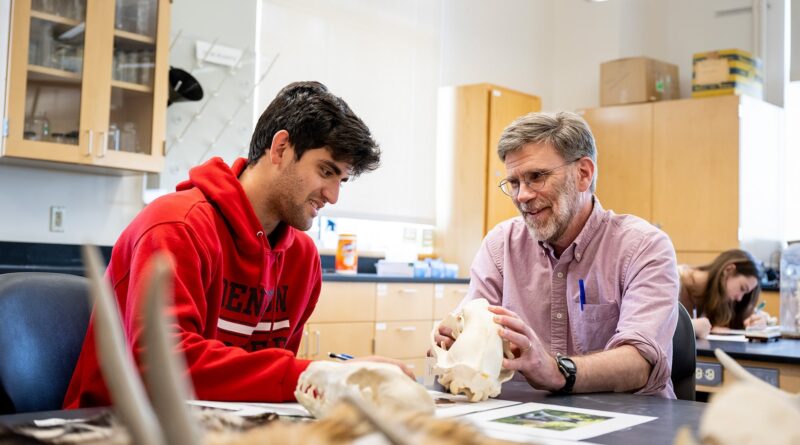Expanding Opportunities: Building Professional Networks for Academic Success
In academia, building a strong professional network is crucial for expanding opportunities and achieving success. Whether you are pursuing a degree, conducting research, or entering a competitive job market, your academic connections can provide valuable support, collaboration, and mentorship. Here are some key strategies to help you build and maintain a professional network for students and faculty that will enhance your academic success.
1. Engage with Faculty Members Early and Often
Your professors and academic advisors are the first points of contact in your professional network. Developing strong relationships with faculty can lead to mentorship opportunities, research collaborations, and recommendations for conferences or internships.
How to Build Faculty Connections:
- Attend office hours regularly to discuss academic interests and research ideas.
- Volunteer for research projects or assist with faculty-led initiatives.
- Seek out opportunities to co-author papers or collaborate on academic projects.
2. Attend Academic Conferences and Workshops
Academic conferences and workshops provide excellent opportunities to meet professionals in your field, learn about the latest research, and expand your network. Presenting your own work can help you gain visibility and establish yourself within your academic community.
Tips for Networking at Conferences:
- Attend panel discussions, presentations, and poster sessions relevant to your field.
- Introduce yourself to speakers, panelists, and other attendees during networking breaks.
- Follow up with people you meet via email or professional platforms like LinkedIn.
3. Join Professional Organizations and Associations
Becoming a member of professional organizations related to your field can open up a wealth of networking opportunities. These organizations often host events, provide access to exclusive resources, and offer platforms for professional development.
Benefits of Joining Professional Organizations:
- Access to industry news, journals, and research publications.
- Opportunities to attend conferences, webinars, and networking events.
- Potential to connect with mentors, peers, and professionals with similar interests.
4. Collaborate with Peers and Colleagues
Your fellow students and colleagues are an essential part of your professional network. Collaborating with peers on group projects, study sessions, or research initiatives can lead to long-term academic partnerships and professional connections.
Ways to Collaborate with Peers:
- Form study groups or research teams to tackle challenging subjects together.
- Work on joint publications or conference presentations.
- Share resources and advice to support each other’s academic growth.
5. Leverage Social Media and Online Platforms
In today’s digital age, social media and professional platforms like LinkedIn and ResearchGate are powerful tools for building your academic network. These platforms allow you to connect with experts in your field, share your research, and stay updated on industry trends.
How to Effectively Use Online Platforms:
- Create a professional profile that highlights your academic achievements and research.
- Follow thought leaders, researchers, and organizations in your field.
- Participate in online discussions, forums, and academic groups to exchange ideas and insights.
6. Seek Out Mentorship and Career Guidance
Finding a mentor is an essential step in building your academic network. A mentor can provide guidance, support, and help you navigate the challenges of academia. Whether it’s a professor, senior researcher, or industry professional, a mentor’s advice can be invaluable in your academic and professional development.
How to Find a Mentor:
- Reach out to faculty members or professionals whose work aligns with your interests.
- Attend departmental events or alumni panels to connect with potential mentors.
- Be proactive in seeking advice and expressing your academic goals.
7. Participate in Research Collaborations and Internships
Engaging in research collaborations or internships can expand your network beyond your university and expose you to new opportunities. Working alongside experienced researchers, industry professionals, and peers can help you build lasting connections while gaining hands-on experience in your field.
Where to Find Research and Internship Opportunities:
- Apply for research assistant positions or internships within your department.
- Look for research collaboration programs or industry-sponsored internships.
- Use your university’s career services or online job boards to discover opportunities.
8. Attend University Events and Networking Functions
Universities often host events such as guest lectures, alumni panels, and career fairs where you can meet professionals from various fields. These events provide excellent opportunities to expand your network and learn from others’ experiences in academia and beyond.
Key University Events to Attend:
- Departmental seminars and guest lectures featuring industry professionals.
- Networking mixers, career fairs, or alumni panels hosted by the university.
- Workshops and skill-building sessions relevant to your academic or career goals.
9. Maintain and Nurture Your Connections
Building a network is not just about meeting people; it’s about maintaining relationships over time. Regularly staying in touch with your academic and professional connections ensures that your network remains active and supportive.
Ways to Maintain Your Network:
- Send periodic updates on your research, academic progress, or achievements.
- Congratulate your contacts on their accomplishments or share relevant opportunities.
- Attend networking events or reunions to reconnect with your contacts in person.
10. Be Open to Cross-Disciplinary Connections
Expanding your network beyond your specific academic discipline can lead to innovative collaborations and new perspectives. Connecting with people from other fields or industries can enhance your research and expose you to a broader range of opportunities.
How to Foster Cross-Disciplinary Connections:
- Attend interdisciplinary conferences or events that bring together different fields.
- Explore collaborations with researchers from other departments or institutions.
- Be open to learning about how different disciplines can contribute to your work.




